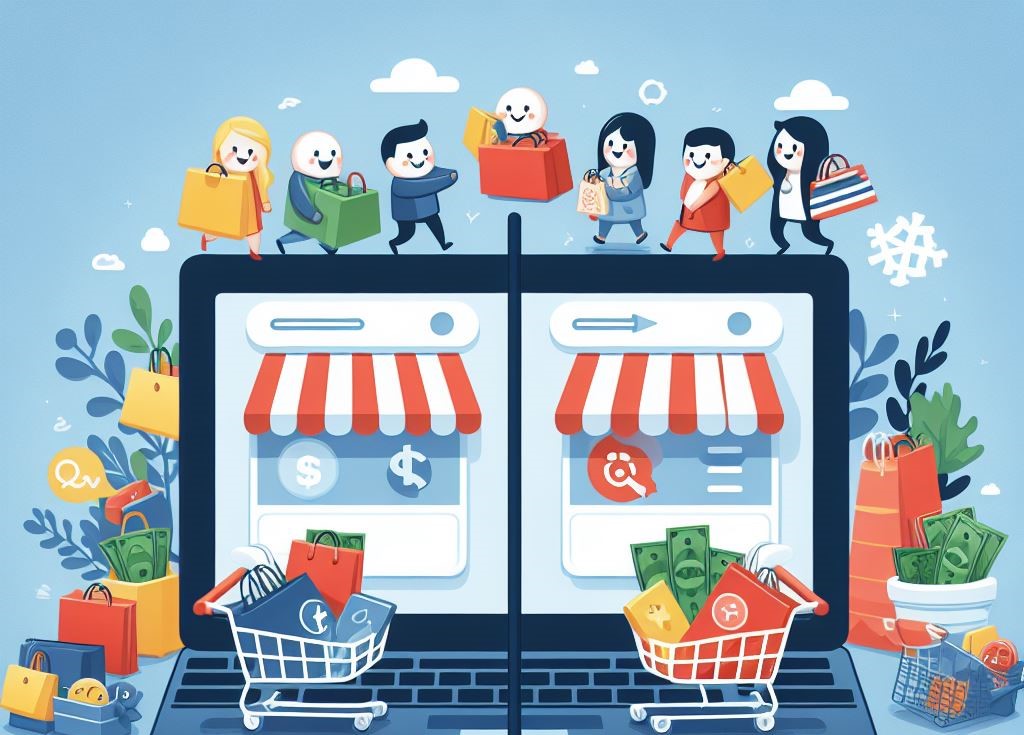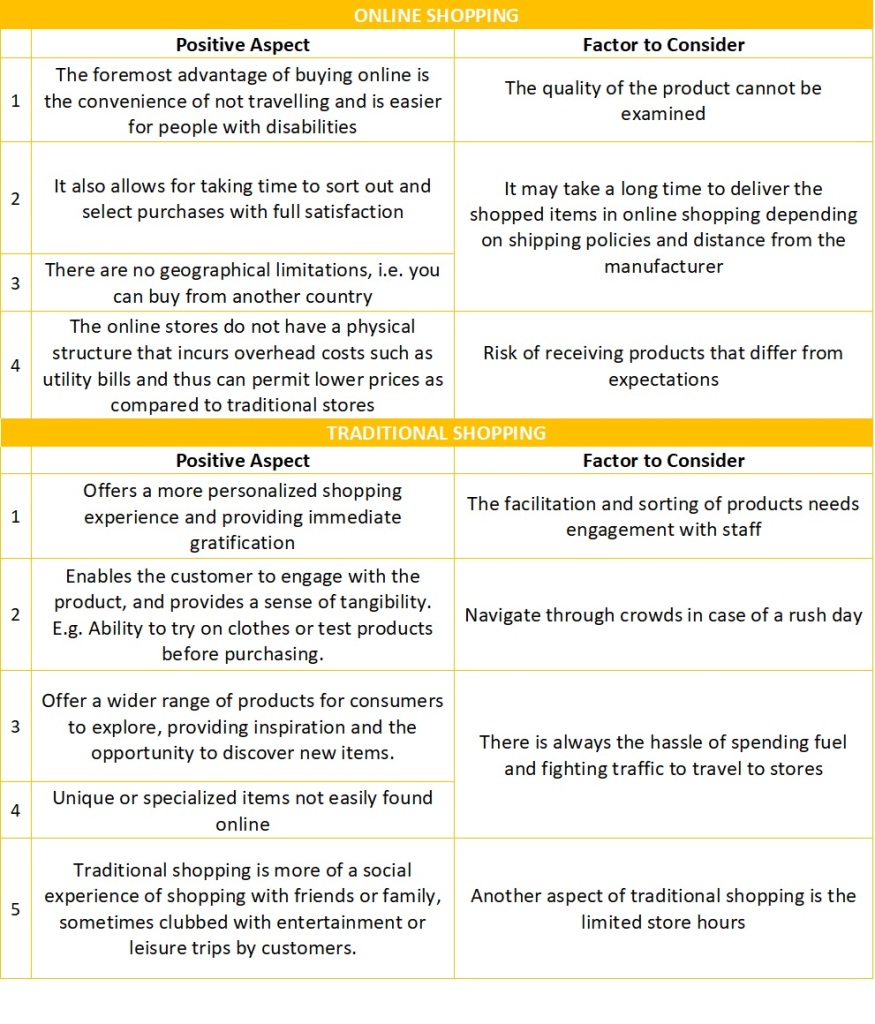
Online shopping is where customers use digital means to select and buy products without using the internet, without being in close proximity to the products, and is referred to as e-commerce. In contrast, traditional shopping, or the old method of buying products, is where a seller has a brick-and-mortar arrangement of products, allowing the buyer or customer to physically interact and complete the shopping transaction.
Availability and access to high-speed internet enabled a large part of the world to shift their transactions to the web. And now most companies are using hybrid models, with an online and offline presence, or, as you say, click and mortar.
Around 20 years ago, things really started in e-commerce to pick up with the support of digital payment platforms like PayPal, and huge e-commerce companies like Amazon, eBay, and Alibaba, with its retail platform Aliexpress, started to emerge and take over the internet markets.
By 2023, an estimate suggests Pakistan had 87.35 million internet users in January 2023, with an internet penetration rate of 36.7%. A few of the most popular online shopping platforms in Pakistan include:
- Daraz: Daraz is known for its extensive product selection, frequent sales events, and diverse range of offerings. It serves around 40 million customers in the South Asian region, and the concept of online shopping and installments was popularized by this company in Pakistan, especially after its acquisition by the Alibaba Group.
- Foodpanda: A platform serving 11 markets in Asia and a subsidiary of Delivery Hero, is diversifying its product range, has various promotions, is focused on groceries and food, and has the convenience of fast delivery.
- Priceoye: Founded in 2015, A well-known platform for electronic products like devices and phones. This platform operates as an online price comparison engine specifically targeting mobile phones in second- and third-tier cities across Pakistan. By leveraging data analytics, it not only offers valuable marketing insights to retailers but also identifies the most favorable deals available from a diverse range of retailers for consumers.
- OLX Pakistan: Users of the flexible online classifieds site OLX Pakistan can purchase and sell a variety of goods in a number of different categories. OLX offers a handy platform for transactions, regardless of what you’re looking for—cell phones, automobiles, homes, electronics, or even pets. Because it meets a variety of needs, including those for real estate and used automobiles, OLX is a preferred platform in Pakistan for both buyers and sellers.
- Pakwheels: Established in 2003, it has emerged as the leading automotive platform in Pakistan. Serving as the country’s top destination for all things automotive, it facilitates connections between buyers and sellers of cars, bikes, and auto parts. Offering comprehensive price information, reviews, and updates on the newest models, PakWheels streamlines the process for those looking to sell or purchase vehicles.
Personally, for me, both modes of shopping have their own benefits, but let’s compare both to get a better picture.

As opposed to online stores, physical stores occupy large swathes of space and have to bear the related costs of displaying and using the space, infrastructure, and maintenance, which may cause prices to be higher than an online store. Yet, consumers still find online stores less acceptable than traditional stores due to disadvantages in shipping, returns, social experience, and post-purchase service.
A study done in 2017 of prices simultaneously collected from the websites and physical stores of 56 large multi-channel retailers in 10 countries suggested that price levels are identical about 72 percent of the time.
Needless to say, the trend is for businesses that focus on both modes of shopping, and customers are aware that, although in the future, online shopping platforms will grow, the traditional brick-and-mortar retail business will continue to provide shopping as an experience and will keep on catering for the segment of buyers who prefer an online experience or do research before physically going and buying the product from the store.
